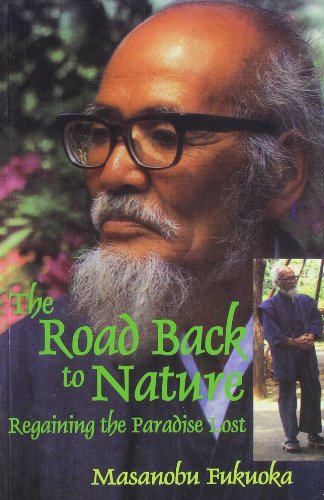The Road Back to Nature
Regaining the Paradise Lost
Masanobu Fukuoka
BOOK REVIEW

In a world overwhelmed by the relentless march of technology, The Road Back to Nature: Regaining the Paradise Lost by Masanobu Fukuoka offers a profound escape into the serene embrace of nature, challenging us to reassess our place within it. Fukuoka, a venerated agricultural visionary from Japan, dares to unveil a radical philosophy: that we are not separate from the earth we inhabit, but intrinsically connected to it. This book is not just a reflection on natural farming; it's a passionate manifesto that implores us to awaken to the beauty surrounding us, urging a return to simpler, more harmonious living.
Fukuoka's writing is imbued with a sense of urgency that resonates deeply in today's context of climate change and ecological crises. He paints a vivid landscape of how modern agricultural practices have distorted our relationship with nature and led us to a precipice of disaster. Each page serves as a wake-up call, beckoning you to explore the lush paradise we once took for granted. This isn't merely a farming guide; it's a passionate invocation for a holistic way of life that could restore lost balance and serenity.
Throughout the book, Fukuoka intricately weaves his life story with his revolutionary ideas. His experiences as a farmer and a thinker illuminate the text, offering readers a glimpse into the mind of a man who transformed his approach to agriculture. He challenges the status quo with tenets of "do-nothing" farming-an approach that embraces nature's processes rather than assaults them. This philosophy is revolutionary yet deeply intuitive, suggesting that we must unlearn much of what society has indoctrinated us to accept as the norm.
As you dive into this masterpiece, sensations of nostalgia and yearning for a forgotten existence wash over you. Fukuoka's lyrical prose and captivating anecdotes evoke emotions that range from joy to melancholy as you come to grips with the stark contrast between a life immersed in nature and the constrained existence of urbanity. Will you heed his call? The turns of phrase, the rhythm of his thoughts pull you into a symphony of inspiration-a powerful reminder that the "paradise lost" is not beyond recovery.
Critics might argue that Fukuoka's methods are impractical for a mass scale, yet his ideals resonate with an increasing number of readers disillusioned with industrial agriculture and rapid urbanization. Reviewers express a mix of admiration and skepticism, some lauding the book as a pivotal guide for change, while others question the feasibility of implementing his ideas within the constraints of modern society. These dialogues encapsulate the book's potency, igniting debates on sustainability, community, and our collective future.
As you traverse through the evocative landscape painted by Fukuoka, consider how his thoughts align with the broader context of environmentalism and social awakenings seen in movements like permaculture. You are nudged to reflect on the futures of food, community, and our obligations to the earth-a pressing concern that transcends geographic and cultural boundaries.
Ultimately, The Road Back to Nature is not merely about farming; it urges you to reconsider your existence, to reweave your life into the fabric of nature itself. Can you imagine walking the path that Fukuoka lays before you, embracing not just methods of cultivation, but a profound mindset shift that can lead to healing-both personally and globally? This journey beckons, and it's one you do not want to miss. 🌍✨️
📖 The Road Back to Nature: Regaining the Paradise Lost
✍ by Masanobu Fukuoka
🧾 377 pages
2011
#road #back #nature #regaining #paradise #lost #masanobu #fukuoka #MasanobuFukuoka